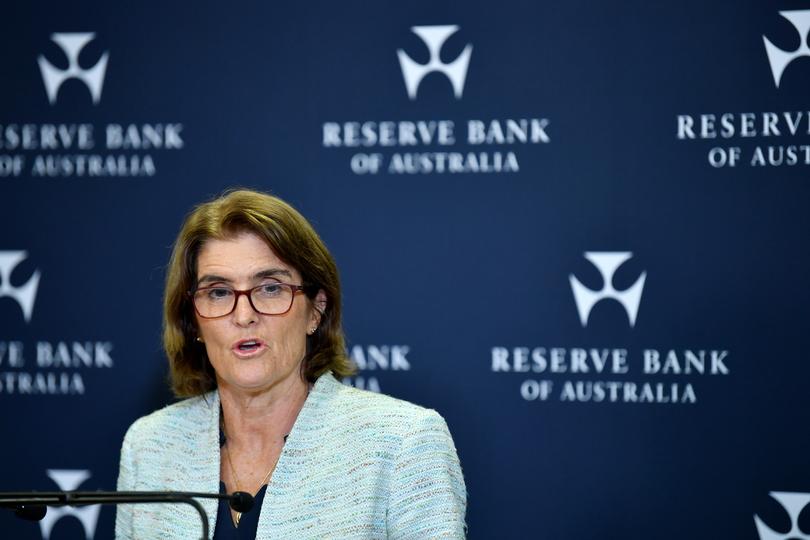Gemma Acton: We haven’t felt this down since COVID but it’s not all bad
New year, new you? Not so fast.

New year, new you? Not so fast, according to NAB, whose latest quarterly well-being survey indicates we haven’t felt this down since COVID first broke out four years ago.
That incidentally, was an all-time survey low.
Yes, these results are derived from subjective responses open to interpretation — namely, respondents’ views of their own happiness, life satisfaction, life worth and anxiety — and the average is just a crude measure that masks the stark differences between various cohorts in the population.
Sign up to The Nightly's newsletters.
Get the first look at the digital newspaper, curated daily stories and breaking headlines delivered to your inbox.
By continuing you agree to our Terms and Privacy Policy.For every young homeowner squirming about recent interest rate rises, there’s a pensioner who’s now wealthier.
And yet, given the survey has been running for 10 years, watching the trendline sink to this equal-record low point is sobering.
When you peek behind the headlines, the cohorts with the highest and lowest senses of well-being are fairly unsurprising.
The cheeriest amongst us are the over-65s, married couples, childless people, men and those living in the country. The most miserable are aged 18-29, singletons, families with children, women and those living in regional cities.
Least surprising of all, those finding times the toughest are jobless people and renters. With regards to the State breakdown, West Australians recorded the highest and their Victorian counterparts the lowest overall sense of wellbeing.
It’s gloomy reading — yet perhaps it is too quick to say we haven’t turned a corner in 2024. While it was only released late last week, the survey was conducted in the final three months of 2023.
Fresher, consumer confidence data collected after that time now paint a brighter outlook. The Westpac-Melbourne Institute consumer sentiment survey for February showed off its highest result in 20 months.
Meanwhile, since February 5, the ANZ-Roy Morgan weekly polls have consistently scored higher than at any week in 2023. Conflicting indicators from the economics teams at three of the big four banks, therefore, beg the question: where to from here for happiness?

It’s notable that the ANZ-Roy Morgan consumer sentiment poll did dip again following news that the jobless rate had jumped to 4.1 per cent in January. Yet that result — the first above 4 per cent since January 2022 — pertained to the summer when an above-average number of people take time off or switch jobs. Economists anticipate we’ll see a rush of people resuming work again in February as holidays end, kids return to school, and life reverts to normal.
That could lead to a levelling off or even a slight fall in the February jobless numbers (due for release on March 21).
If we instead see the jobless rate inch higher again more quickly than expected, that could trigger a further downturn in sentiment. Then again, there are sound reasons it might not.
It’s hard to pinpoint exactly how this plays out, as a little dose of labour market weakness is the medicine our economy has been needing. A red-hot jobs market, reflecting a dire shortage of workers largely due to lag effects from the pandemic’s closed border policies, has been one of the challenges for the Reserve Bank in its extended inflation battle.
That shortage helped to drive annual wage growth up to 4.2 per cent last quarter, its highest in nearly 15 years. That’s even higher than the Reserve Bank’s earlier forecast for wage growth to peak later this year at 4.1 per cent.
If the gentle softening in the jobs market persists, we may likely have already passed peak wage growth for this cycle.
For those hoping the Reserve Bank will get around to interest rate cuts sooner rather than later, this would be welcome news.
Yes, there are other major contributors to the inflation beast the RBA is working to slay — including overseas factors largely beyond its control, such as geopolitical crises, alongside local factors, such as the crippling housing shortage — but the strength of the jobs market has been impactful in both encouraging workers to continue spending to some degree and enabling businesses to push through higher costs to consumers.
Despite the latest wage growth figures surprising on the high side, economists have mostly held their ground with regard to predictions about what the Reserve Bank will do next.

Despite governor Michele Bullock emphasising at this month’s press conference that the next interest rate move could be either up or down, few forecasters are betting on any change in March.
Consensus still overwhelming favours the idea that the first cut will happen in mid-to-late 2024, with further cuts next year.
I’ll be curious to check in again on the sentiment surveys later this year. While the jobless rate is expected to tick higher, household balance sheets should feel some relief as inflation continues to drop off in the coming months and the benefit from tax cuts feeds through later this year.
Perhaps come July, it’ll be a new financial year, new you.
Gemma Acton is the Seven Network’s finance editor.
Originally published as Life’s good ... but really only for the lucky few of us

